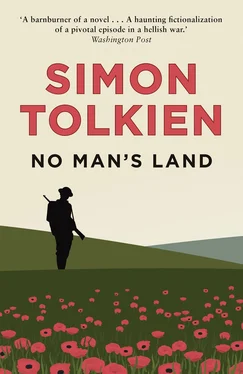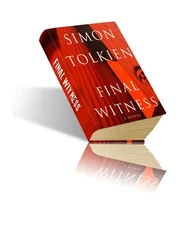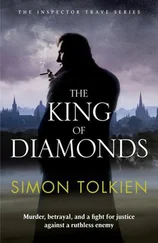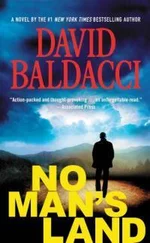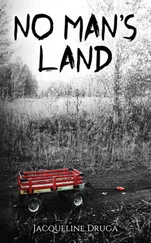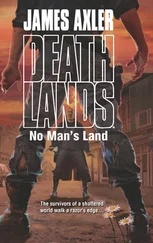The house belonged to a miner’s widow whose husband had died from tuberculosis several years before. She still wore her widow’s weeds and moved about the dimly lit rooms in a state of permanent misery, living as far as Adam could tell on an unchanging diet of cold tea and porridge. A sampler invoking the Lord to ‘Bless This House’ gathered dust over the mantelpiece in the parlour above a faded photograph of the widow and her late husband on their wedding day. Even the aspidistra in the corner, the hardiest of indoor plants, wilted miserably, waiting to die.
Daniel and Adam had the upstairs rooms and shared use of the kitchen. There was a permanent smell of mouldy dampness in the air that fires could never quite chase away, but Daniel did his best to brighten the place up, pinning coloured pictures from penny magazines over the mildew stains on the walls and bringing home two matching armchairs to stand on either side of the fireplace – bargains bought from a family that was moving away and had no further use for them.
He never complained, although Adam guessed from the stiff way his father walked that he wasn’t finding it easy to adapt to the hard manual labour and the cramped conditions inside the mine. And it was strange for Adam too seeing his father come back from work all black and dirty from the coal. He winced when he washed his father’s back, seeing the cuts and abrasions – the physical toll exacted daily by the pit.
It was strange: adversity seemed to soften rather than harden Daniel, and in the evenings, father and son were often happy, sitting side by side in front of the fire, toasting bacon on a fork and catching the fat on their slices of bread. They played chess on a handmade board and Daniel listened while Adam told him about the heroes and villains of long ago, just as Adam had listened to his mother reading him the same stories when he was a boy, so that sometimes the dead world of the ancients seemed more real to them than the mining town lying quiet outside the window.
And when Adam had finished his storytelling, they talked about issues such as whether the senators had been right to assassinate Caesar – Daniel thought they were but Adam was less sure; and whether the Roman Empire had been doomed from the beginning. They argued sometimes until the candles had almost burnt away, and Adam smiled, thinking how unlikely such conversations were to be taking place in these shabby rooms in this shabby little house in the middle of nowhere, while the widow snored down below.
But later, lying in bed, Adam would see the lights sprawling over the dark ceiling from the lamps swinging in the hands of the late-shift miners as they came tramping down the road outside on the way to work, their voices rising and receding as they passed the house. And he would feel fearful of he knew not what, like a weight was pressing down on his abdomen, a sense of foreboding that would keep him awake late into the night.
The day began much like any other. Daniel was working the early shift and the house was cold and silent as Adam got dressed and gathered his books for school. He had an exam to take and he was nervous, hoping he would do well. Outside, the women in their workaday aprons were gathered on their front doorsteps gossiping. They stopped talking as he went past, looking after him as he went up the road. They weren’t hostile but they weren’t friendly either. Adam had lived in Scarsdale long enough to no longer be upset by their response. He wasn’t one of their own and he never would be – he spoke differently to them and he didn’t work in the mine. But nevertheless, the old sense of not belonging added to the free-floating anxiety that he hadn’t been able to shake off since he woke up. He felt burdened by an invisible weight, the same feeling he had sometimes when a sixth sense told him it was going to rain but the heavy clouds stayed hanging overhead, refusing to open. Not that that was the case today – it was a bright June morning and he increased his pace, breathing the fresh air deep into his lungs in a largely unsuccessful attempt to lift his spirits.
The siren sounded just as he reached the corner. The mournful inhuman cry, the signal for disaster, broke out from the pithead and reverberated through the town. Adam was shocked by the noise and yet it also felt like something he had been expecting ever since the day his father left the safety of the checkweighman’s office, forced to try to earn his living underground.
All around doors were opening and people were spilling out into the street, pulling on their coats as they headed down the hill towards the mine. Everyone was talking – asking questions and getting no answers and passing out of hearing as Adam stood, rooted to the spot, looking back at the headstocks. They seemed like huge alien shapes lit up by the morning sun, hostile visitors from some other planet.
Voices rose and fell as rumours flowed up and down the hill, until suddenly Adam heard a name he recognized – Oakwell : the district where Edgar worked and now his father too; the district where he’d disgraced himself, fainting in front of Rawdon Dawes and his vile father. Just the other day Daniel had told Adam that he’d been sent there. He’d seemed pleased, stupidly pleased, happy that he would be working where the coal was more plentiful so that there would be more money in his pay packet come Friday evening, but what he didn’t say and Adam knew from Ernest was that the Oakwell seam was deeper and narrower and less safe than the old ones – it was where the two miners had died in the winter.
Adam began to walk towards the mine, carried forward ever more quickly by the press of the crowd that was surging tide-like down the hill. At the pithead there was chaos, although the cage appeared to be operating normally and there was no smoke billowing out from the opening or other outward sign of the trouble down below. Atkins and a group of deputies were making ineffectual attempts to keep an open corridor for rescuers to get to and from the shaft, and a man with a camera was getting in everyone’s way taking pictures. Some of the women were crying, desperate for news, but no one seemed to have any definite information about what had happened or who was dead or trapped.
Adam didn’t hesitate. He bore no resemblance to the sweating, shaking version of himself that had climbed the pithead stairs on his last visit, feeling as though they were the steps up to the gallows. Now he waited until the cage was almost full and then rushed forward, joining the throng of rescuers inside. The banksman was too distracted by the growing hysteria of the crowd to notice the late arrival and slammed the gate shut with a clang. Forty-five seconds later Adam was released out into the mine.
As soon as the cage lifted back up, the men at the bottom went back to filling coal tubs with water from the sump at the bottom of the shaft. The full tubs were then wheeled to the stables where they were coupled up in lines to the limbers of the pit ponies whose boy drivers drove them away into the mine, passing other ponies that were coming back up the tunnels the other way pulling trains of empty tubs ready for refilling.
All around, the lights of the miners’ lamps were dancing in the blackness like white dots as the men moved to and fro, but, unlike up above, their hectic activity seemed cohesive and organized as they battled against a common enemy: invisible, inaudible, but utterly real away down the black tunnels beyond the stables. And the enemy was winning – or at least that was the impression that Adam was getting from listening to the snatches of passing conversation that he was able to pick up from the out-of-the-way corner into which he had retreated while he worked out his next move.
Читать дальше
